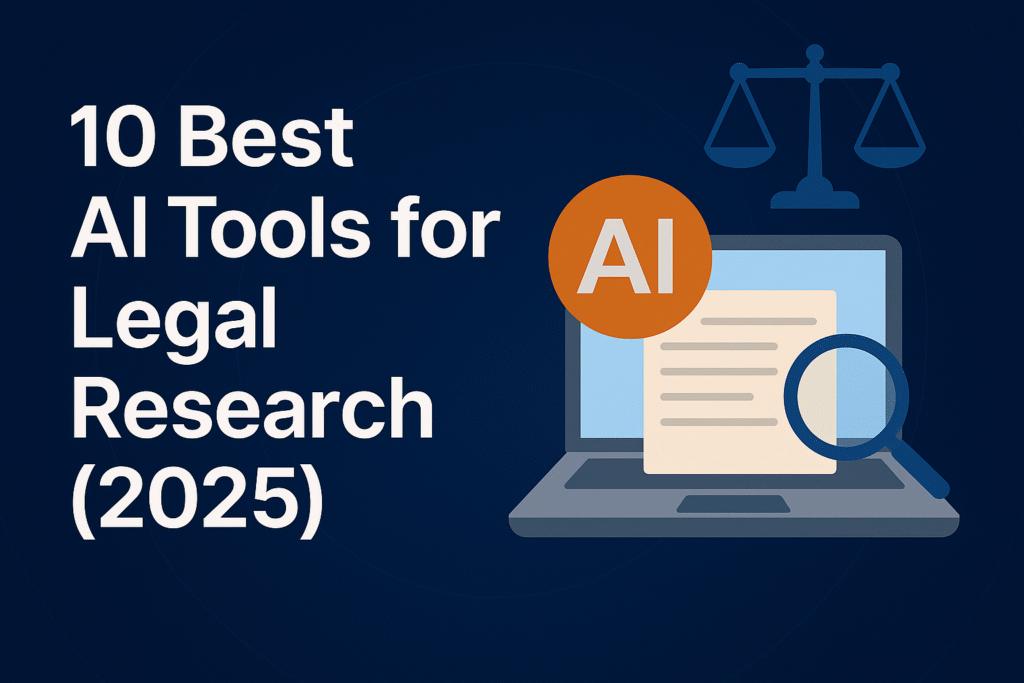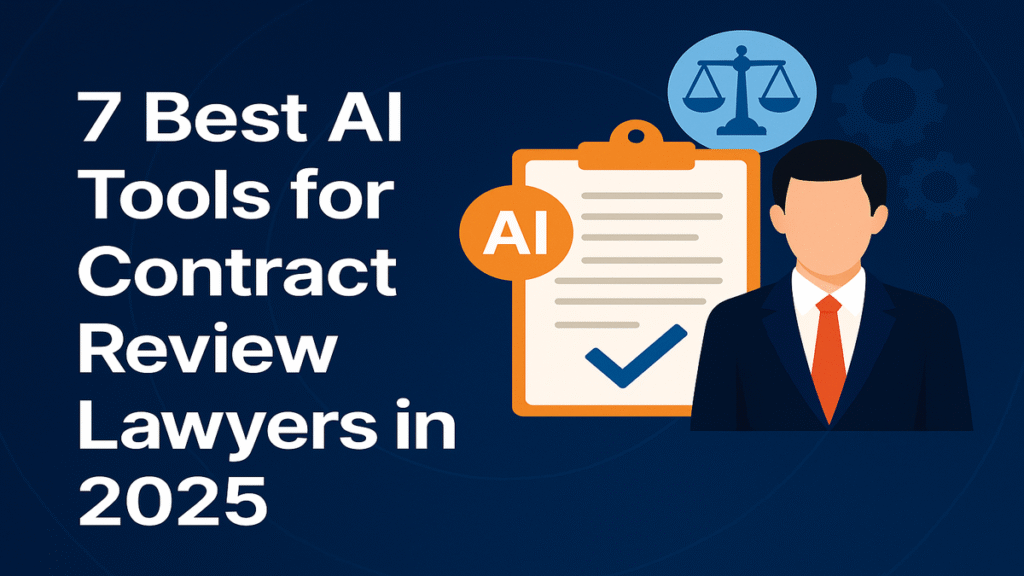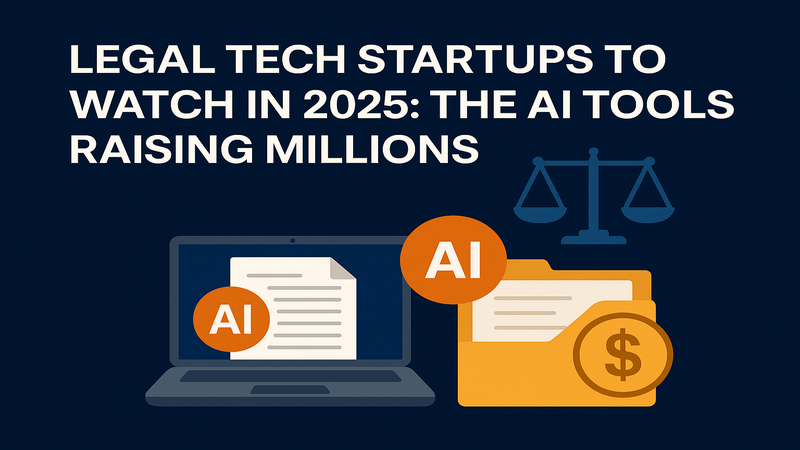Legal research hasn’t gotten easier—deadlines haven’t moved and expectations are higher than ever. What has changed is the tooling. In 2025, a new wave of AI-assisted platforms sits on top of authoritative legal databases and firm knowledge, turning long hunts into targeted queries and summarized answers (with citations you can verify).
Below you’ll find the best AI legal research tools right now—what they do well, who they’re for, and buying notes so you don’t waste time or budget.
How this list was built
We compared public feature sets, demo materials, vendor documentation, and verified user feedback from lawyers/legal ops. We looked for: (1) accuracy and citations, (2) database coverage, (3) speed and UI, (4) privacy/compliance posture, and (5) pricing transparency. No pay-to-play placements.
The Shortlist (At a Glance)
| Tool | Best For | Why It Stands Out | Pricing Snapshot |
|---|---|---|---|
| Westlaw Precision (AI) | Common-law research at depth | Precision search filters, KeyCite, trustworthy citator | Quote-based |
| Lexis+ AI | Comprehensive research + drafting | Shepard’s, conversational search, integrated drafting | Quote-based |
| vLex + Vincent AI | Global/foreign law | Huge international coverage, strong case linking | Plans & quote |
| Bloomberg Law (AI features) | Research + practical guidance | Dockets analytics, practical notes, market intel | Quote-based |
| CoCounsel (Thomson Reuters) | Conversational research + memos | Ask natural-language questions; auto-memos with citations | Quote-based |
| Harvey | Firm copiloting across data | Connects to firm docs + subscriptions; governance controls | Enterprise |
| CaseMine (CaseIQ) | India-focused research | Strong Indian case law graphing, AI headnotes | Plans & quote |
| Manupatra (Manu AI) | India-focused research | Robust Indian library + AI summaries/query assist | Plans & quote |
| Jus Mundi | International law/arbitration | Treaties, awards, counsel/arbitrator analytics, AI search | Plans & quote |
| Paxton AI | Drafting/research assistant | Fast Q&A with citations; plug-ins/workflows for solos/SMBs | Plans & quote |
1) Westlaw Precision (AI)
Best for: Deep, defensible research in U.S./common-law jurisdictions.
Why lawyers pick it: KeyCite for validation, precision search that lets you filter by issue, motion type, cause of action, and fact pattern. AI summarization and brief analysis accelerate first passes without losing control of sources.
Standout features
- Precision search facets and KeyCite®
- AI-assisted case summaries and brief checks
- Tight integration with drafting and knowledge tools
Watch-outs: Quote-based pricing; train teams on prompt discipline for consistent results.
2) Lexis+ AI
Best for: Comprehensive research with Shepard’s and conversational answers.
Why lawyers pick it: Strong citator (Shepard’s®), brief analysis, and AI drafting that produces arguments with inline citations you can click to verify.
Standout features
- Conversational Q&A over the Lexis library
- Shepard’s signals and parallel citations
- Draft/translate/summarize with source links
Watch-outs: Enterprise focus; ensure internal policies on saving prompts/outputs.
3) vLex + Vincent AI
Best for: International and foreign law research.
Why lawyers pick it: Broad global coverage (vLex absorbed Fastcase), excellent cross-jurisdiction linking, and Vincent AI to surface similar judgments/arguments you might miss.
Standout features
- Massive multi-jurisdiction database
- Similar-case discovery via Vincent AI
- Good for cross-border matters and comparative law
Watch-outs: Coverage varies by country; confirm the exact courts/journals you need.
4) Bloomberg Law (AI features)
Best for: Research blended with practical guidance and market intelligence.
Why lawyers pick it: Dockets and litigation analytics, great practice-center content, and AI aids that pull relevant materials faster for deal and litigation teams.
Standout features
- Dockets search + analytics
- Practical guidance, checklists, and treatises
- Strong company/market context for commercial work
Watch-outs: Best value when your teams also use its analytics and practice notes.
5) CoCounsel (Thomson Reuters)
Best for: Natural-language research and memo drafting with citations.
Why lawyers pick it: Ask questions in plain English, get structured answers with linked authorities, and generate first-draft research memos you can refine.
Standout features
- Q&A with verifiable citations
- First-draft research memos and outlines
- Plays well with Westlaw content in TR environments
Watch-outs: Define internal review steps so AI memos never skip human validation.
6) Harvey
Best for: Larger firms building a secure copilot across their own documents and subscriptions.
Why lawyers pick it: Connects to firm DMS/knowledge bases and research subscriptions; strong governance and audit controls; multi-tasking beyond research (summaries, clause comparisons, workflows).
Standout features
- Private deployment options and permissions
- Orchestration across internal + external sources
- Useful for multi-jurisdiction, cross-practice teams
Watch-outs: Enterprise implementation; requires IT/legal ops alignment.
7) CaseMine (CaseIQ)
Best for: India-focused case law research with AI headnotes and graphs.
Why lawyers pick it: Good judgment linking, visual mapping of precedents, and a practical interface for Indian courts.
Standout features
- CaseIQ graphing and recommendation engine
- AI headnotes/summaries; cause-title matching
- Indian case law emphasis; comparative links
Watch-outs: Ensure your required reporters and courts are covered in your plan.
8) Manupatra (Manu AI)
Best for: Another strong option for Indian law with extensive databases.
Why lawyers pick it: Wide Indian coverage (statutes, rules, notifications), AI-assisted query refinement and summarization, ready citations.
Standout features
- “Manu” AI helper for queries and summaries
- Editorial enhancements and live links
- Practical filters for Indian practice
Watch-outs: Evaluate side-by-side with CaseMine/SCC equivalents to match preferences.
9) Jus Mundi
Best for: International law & arbitration (treaties, awards, public international law).
Why lawyers pick it: Unique corpus (investment arbitration/public international law), profiles of arbitrators/counsel, and AI search across highly specialized documents.
Standout features
- Treaties, rules, awards, pleadings where available
- Counsel/arbitrator analytics
- AI-assisted semantic search
Watch-outs: Niche focus—excellent if you’re in the field; overkill otherwise.
10) Paxton AI
Best for: Solo/small firms wanting a drafting/research copilot with citations.
Why lawyers pick it: Lightweight, quick responses, and clear source links; helpful for first-pass research, outlines, and motion/brief scaffolding.
Standout features
- Q&A with footnoted citations
- Draft sections with editable templates
- Integrations/workflows for day-to-day tasks
Watch-outs: Treat as an assistant, not a database replacement; always verify sources.
Final Word
If you need one takeaway: accuracy and verifiability beat speed. Choose a platform that lets you move quickly and check every authority. For many teams, the best setup is an authoritative database plus a copilot that drafts outlines and memos you can refine.



